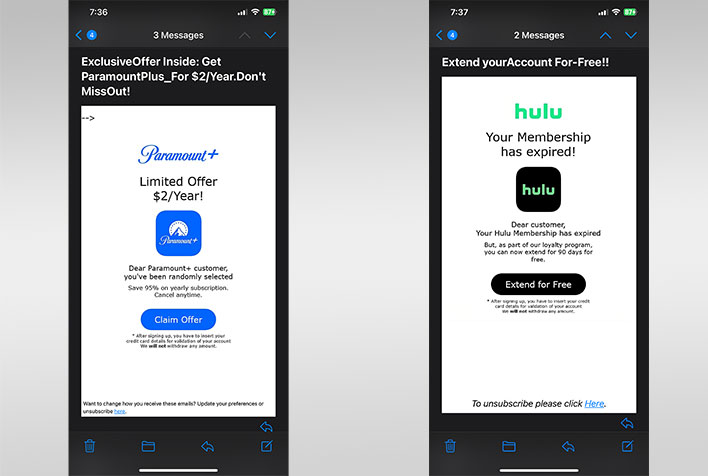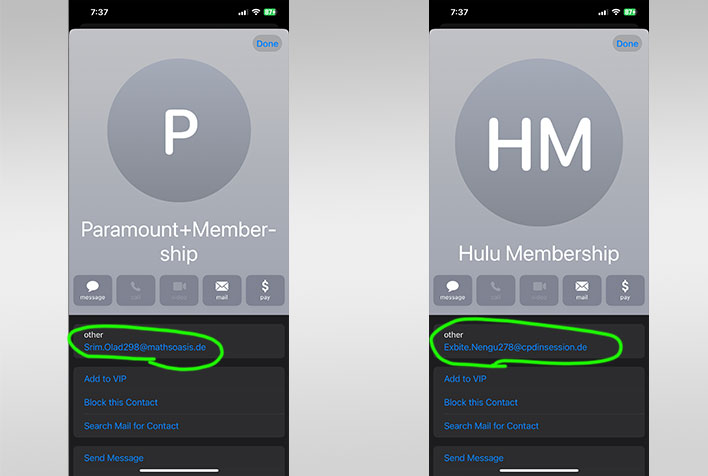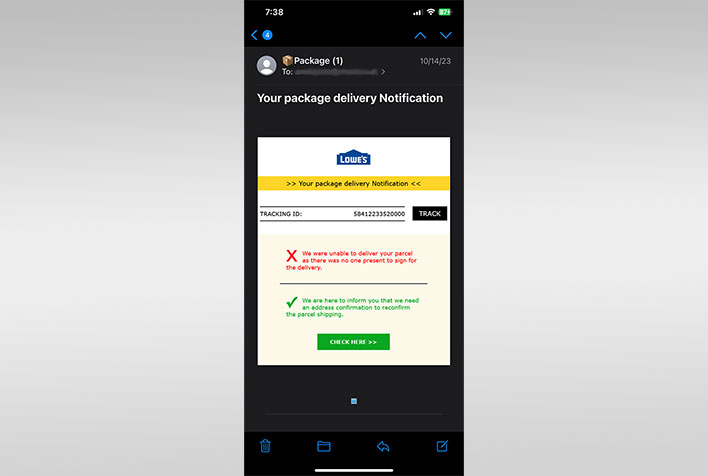Warn Your Loved Ones Not To Fall For These Trending Holiday Email Scams

The holiday season is upon us, which means a barrage of sales on services and products as people find themselves in the gift-giving mood. It's also a time for feasting, and not just on turkey and ham—like nasty little cockroaches and termites, scammers come out of the woodwork during the holiday season in hopes of feasting on victims who are gullible, or who perhaps let their guard down. Don't fall for their ruses, and give your parents and other loved ones a heads up, too.
Some scams are more clever than others, though they're still usually easy to spot for the tech savvy. Even so, cyber crooks can increase their chances of an illicit payday by striking while the iron is hot. Case in point, the Black Friday and Cyber Monday sales bonanza included a litany of deals on streaming services. including three months of Paramount+ for the price of one.
That deal is still happening—you can sign up for Paramount+ Essential for $1.99 per month for the first three months, or Paramount+ with Showtime for $3.99 per month (also for the first three months). Likewise, Hulu is currently running an offer where you can subscribe for $0.99 per month for 12 months. So imagine my non-surprise when these two emails showed up in my inbox...
In my case, the Paramount+ email arrived not terribly long after I cancelled the service, which I had been subscribing to for the past several months. That part of the timing is probably a coincidence, but given that users may hop back and forth on various streaming services depending on what exclusive content they're interested in at the moment (and never paying for more than one at any given time), it can happen to anyone.
Of course, there are telltale signs that this is a scam. For one, the grammatical errors in the subject line give it away. Being offered a 12-month subscription for a measly two bucks is another sign, though Hulu's supposed extension offer is at least plausible.
In both cases, however, the offer links are bogus—neither none redirects to the respective service's official site. The other obvious sign is within the email headers, which reveal non-official (read: scammer) email addresses. Have a look...
Suffice to say, those emails are NOT associated with Paramount+ or Hulu. You can (and should) block scammer email addresses that hit your inbox, though that's really like putting a band-aid on a severed limb. That's to say, scammers are constantly registering new email addresses so it's important to know what to look out for in the first place.
Ruses don't just revolve around streaming services, either. Be on the lookout for fake package delivery notices as well, like this one...
You may see ones exactly like the above or tailored to a different retailer, as well as ones purporting to originate from UPS, FedEx, USPS, and so forth. These can be especially devious because they rely on victims who may not remember everything they ordered. Some people may also assume that someone else sent them a package, and be curious enough to click the link.
The link, of course, is a bogus one that's intended to phish a user's details. Additionally, you can check the email headers on these kinds of emails and see that they're bogus.
'Tis the season of scams, folks. Be extra vigilant about practicing safe computing habits, and warn your family members and friends to be wary of email notifications as well.




